Labebet Injection is prescribed for the urgent management of hypertensive emergencies (sudden and severe rise in blood pressure). It is also used in cases of severe hypertension during pregnancy where rapid blood pressure control is required. This medicine works by lowering blood pressure quickly and reducing the strain on the heart. Since it is given intravenously, administration is done by a doctor under strict monitoring of blood pressure.
Common side effects may include dizziness, nausea, vomiting, fatigue, tingling sensations (paresthesia), swelling, cold hands or feet, and impotence. Most of these subside as your body adapts, but if they persist or worsen, inform your doctor immediately.
Before receiving Labebet Injection, inform your doctor if you have liver or kidney disease. It is generally avoided during pregnancy unless clearly needed, and should only be given under medical supervision if breastfeeding.
Uses of Labebet Injection
• Management of hypertensive emergency
• Severe hypertension during pregnancy
Benefits of Labebet Injection
Labebet Injection works by blocking certain stress hormones that affect the heart and blood vessels. This slows the heart rate, reduces the force of pumping, and relaxes the blood vessels, which leads to a quick fall in blood pressure. Rapid control of high blood pressure lowers the risk of stroke, heart attack, and kidney complications.
Possible Side Effects
• Dizziness
• Nausea or vomiting
• Fatigue
• Tingling/pricking sensations
• Impotence
• Swelling (edema)
• Cold extremities (hands/feet)
How to Use
This injection is given only by a doctor or nurse. Do not attempt self-administration.
How it Works
Labebet Injection is both an alpha- and beta-blocker. It reduces blood pressure by slowing down the heart rate and relaxing blood vessels, making the heart’s pumping action more efficient.
Safety Advice
- Alcohol – Avoid alcohol; unsafe with this medicine.
- Pregnancy – May be unsafe; consult your doctor before use.
- Breastfeeding – Probably safe; use only under medical supervision.
- Driving – Not recommended as it can cause dizziness, drowsiness, or blurred vision.
- Kidney – Generally safe; no dose adjustment usually required.
- Liver – Use with caution; dose adjustment may be needed.
Missed Dose
Since it is given by a healthcare professional, you are unlikely to miss a dose. If a dose is skipped, consult your doctor immediately.
Vendor Information
- Address:
- No ratings found yet!






































































































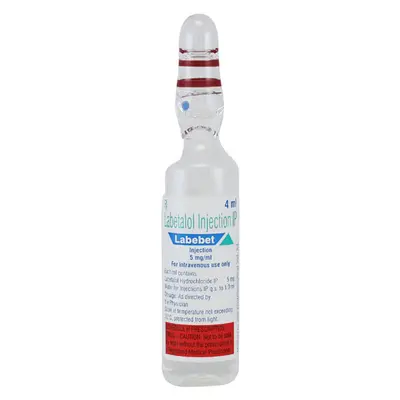
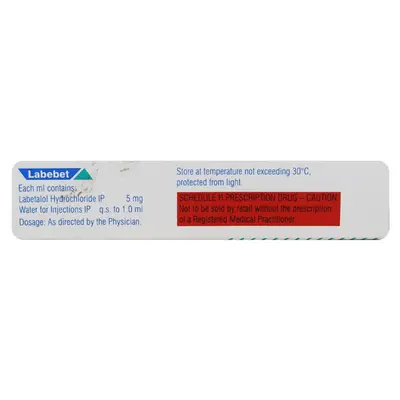
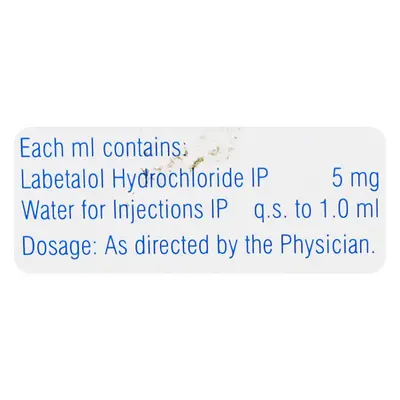
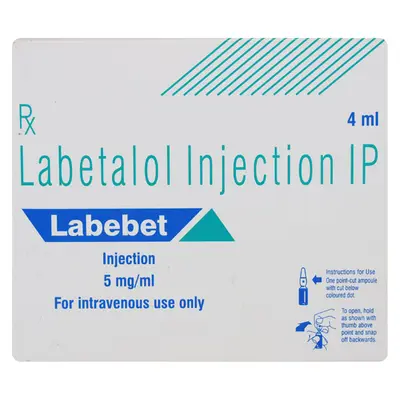






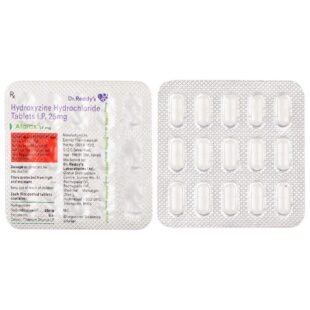
Reviews
There are no reviews yet.